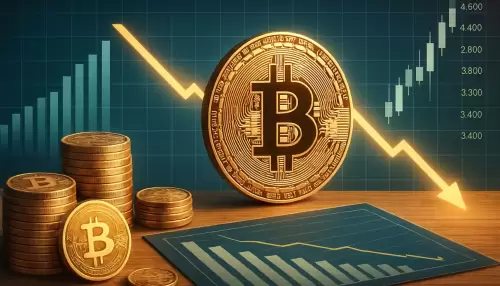Thailand is making moves to become a regional crypto hub, with the SEC leading the charge. Here's the latest on token listings, regulations, and crypto innovation.
Thailand's crypto scene is heating up, with the Securities and Exchange Commission (SEC) at the forefront of major changes. From revamping token listing rules to exploring Bitcoin ETFs, the Kingdom is serious about becoming a blockchain and crypto innovation hub. Let's dive into what's happening.
Thailand SEC Revamps Token Listing Rules
The Thai SEC is currently consulting on reforming digital asset listing rules for licensed exchanges, aiming to align regulations with technological advancements and market shifts. This includes allowing exchanges to list ready-to-use utility tokens, even those issued by the exchanges themselves. The catch? These tokens need to have real utility and meet clearly defined listing criteria.
Transparency is key. The SEC wants exchanges to disclose any connections between listed tokens and related individuals or companies. Think of it as shining a light on potential conflicts of interest, ensuring everyone plays fair. These disclosures will be required for both new and existing tokens.
Stronger Oversight and Disclosure
To prevent unfair trading, the Thai SEC is implementing improved monitoring tools and a mandatory disclosure window for existing token issuers. Issuers will have 90 days to submit related-party data once the new rules take effect. Exchanges will also need to maintain accurate reporting systems to support the SEC’s surveillance activities. It's all about accountability and fairness in the digital asset trading space.
Tax Breaks and Investment Incentives
It’s not just about regulation. The Thai government is actively promoting crypto growth through fiscal and infrastructure support. A five-year capital gains tax waiver on crypto transactions went into effect in January 2025 for trades conducted through licensed platforms. Plus, they're planning to issue digital investment tokens worth over $150 million. The Ministry of Finance is even considering listing Bitcoin ETFs on domestic exchanges, giving Thai investors regulated access to digital assets.
The Philippines' Approach: A Quick Look
While Thailand is making strides, it's worth noting how other Southeast Asian nations are approaching crypto regulation. For instance, the Philippines has adopted a twin-regulator model involving the Bangko Sentral ng Pilipinas (BSP) and the SEC. This model focuses on strict VASP licensing, AML rules, and hefty penalties for non-compliance. The goal? Boosting investor protection and regulatory clarity. Although the Philippines' model isn't directly comparable, it offers a glimpse into the diverse regulatory approaches in the region.
Shibwifhat: A Meme Coin on the Rise?
On a slightly different note, the rise of meme coins like Shibwifhat highlights the innovative spirit within the crypto space. Built on the Solana blockchain, Shibwifhat aims to be the "ultimate Dogwifhat killer." While meme coins can be highly volatile, they often showcase the power of community-driven projects and the potential for rapid growth. Shibwifhat's choice of Solana, known for its speed and low transaction costs, positions it as a scalable alternative in the meme coin ecosystem.
Looking Ahead
Thailand's proactive approach to crypto regulation and innovation is positioning it as a potential leader in the region. By balancing regulation with incentives, the country aims to foster a healthy and vibrant digital asset ecosystem. Will Thailand become the next crypto haven? Only time will tell, but the signs are certainly promising.
So, keep your eyes on Thailand! From tax breaks to potential Bitcoin ETFs, the Land of Smiles is making some serious moves in the crypto world. Who knows, maybe your next big investment opportunity will be sipping Mai Tais on a Phuket beach. Cheers to that!










































































